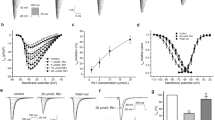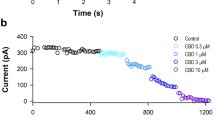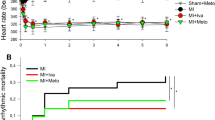Abstract
THE anti-arrhythmic action of guanethidine which was found to prevent a type of clinical paroxysmal ventricular tachycardia1 and prevented experimental atrial fibrillation2 suggested that other agents which interfere with the release of catecholamines might exhibit similar effectiveness.
This is a preview of subscription content, access via your institution
Access options
Subscribe to this journal
Receive 51 print issues and online access
$199.00 per year
only $3.90 per issue
Buy this article
- Purchase on Springer Link
- Instant access to full article PDF
Prices may be subject to local taxes which are calculated during checkout
Similar content being viewed by others
References
Harris, W. E., Semler, H. J., and Griswold, H. E., Amer. Heart J., 67, 812 (1964).
Leveque, P. E., Nature, 203, 1389 (1964).
Leveque, P. E., Arch. Intern. Pharmacodyn., 149, 279 (1964).
Boura, A. L. A., and Green, A. F., Brit. J. Pharmacol., 14, 536 (1959).
Boura, A. L. A., et al., Brit. J. Pharmacol., 15, 256 (1960).
Author information
Authors and Affiliations
Rights and permissions
About this article
Cite this article
LEVEQUE, P. Anti-arrhythmic Action of Bretylium. Nature 207, 203–204 (1965). https://doi.org/10.1038/207203a0
Issue Date:
DOI: https://doi.org/10.1038/207203a0
Comments
By submitting a comment you agree to abide by our Terms and Community Guidelines. If you find something abusive or that does not comply with our terms or guidelines please flag it as inappropriate.



